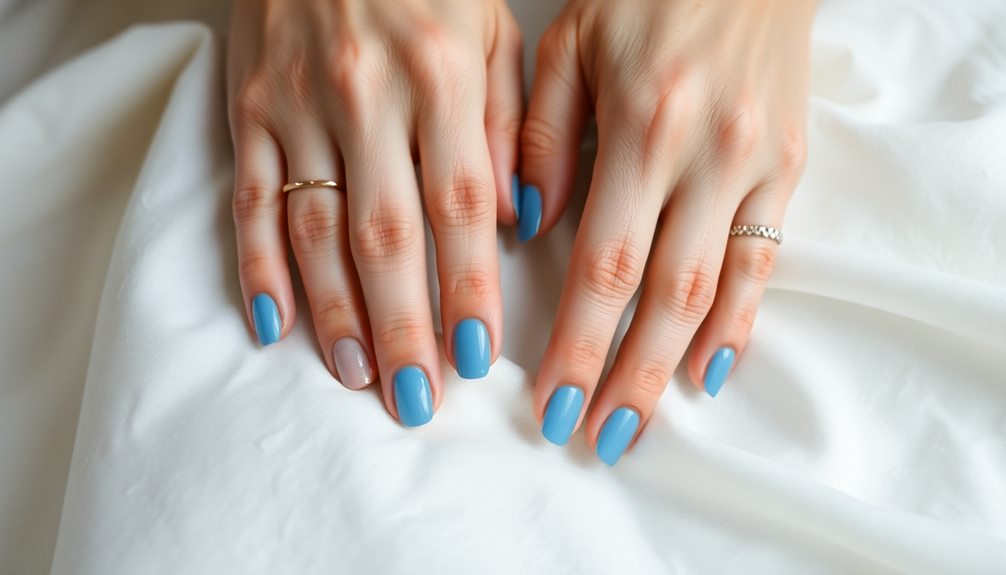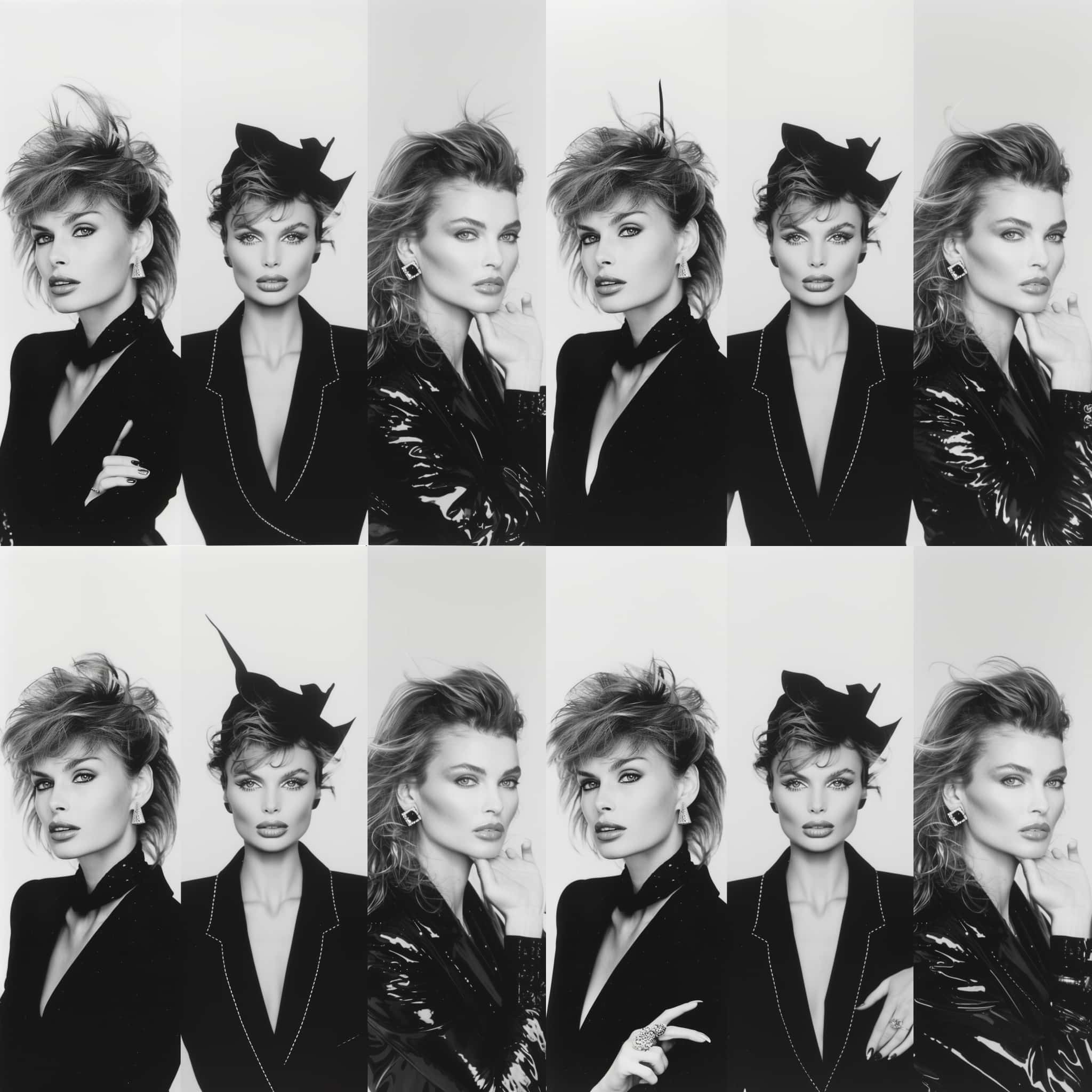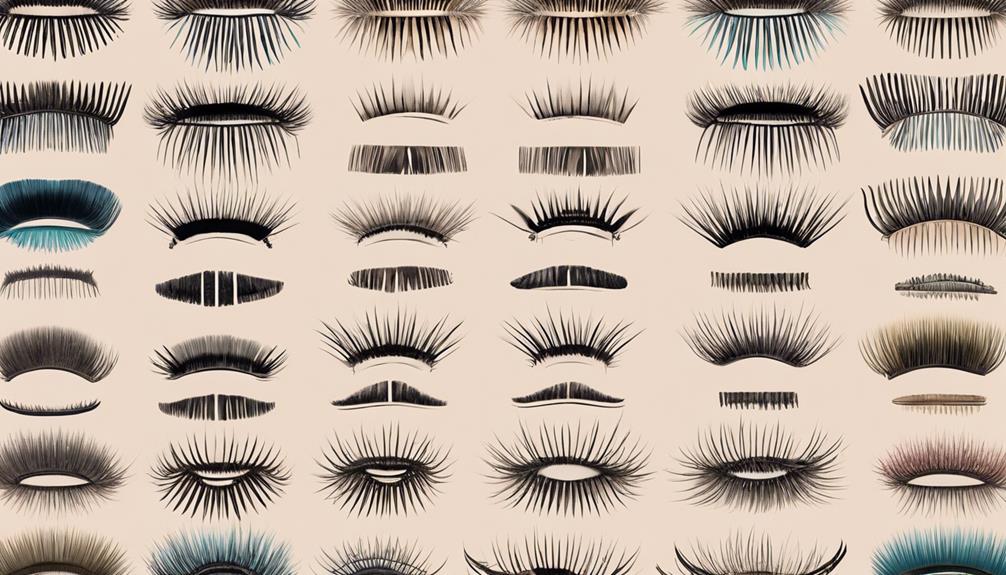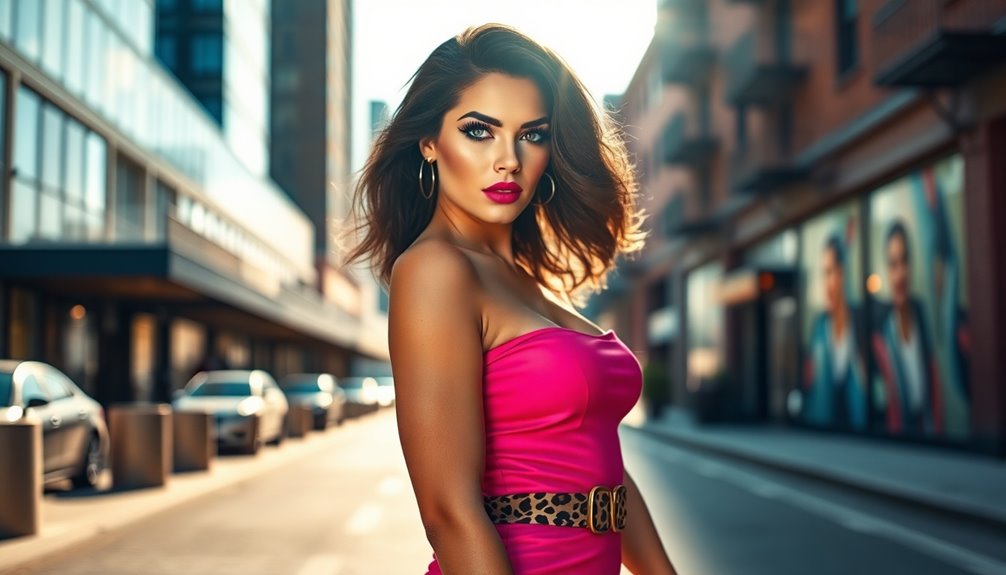Inclusive beauty has redefined cosmetics by creating a wealth of products for every skin tone. Brands like Fenty Beauty, MAC, and Juvias Place lead the charge with extensive shade ranges—Fenty offers an impressive 50 shades! You'll find affordable options from Maybelline and CoverGirl, ensuring inclusivity without breaking the bank. These brands celebrate diversity not just in products but in their marketing as well, showcasing real beauty beyond traditional standards. With social media amplifying inclusivity, the beauty industry is evolving rapidly. There's so much more to discover about this exciting trend and the products that fit your unique needs.
Key Takeaways
- Fenty Beauty offers a revolutionary 50-shade foundation line to cater to diverse skin tones and redefine industry standards.
- MAC Cosmetics provides 60 shades, demonstrating a long-standing commitment to inclusivity across various skin tones.
- Juvias Place specializes in vibrant shades tailored for deeper skin tones, ensuring representation in color cosmetics.
- Maybelline's Fit Me line features 40 shades, emphasizing accessibility and affordability for a wide range of consumers.
- Pat McGrath Labs supports diversity with 36 luxurious foundation shades, showcasing global beauty through inclusive marketing efforts.
Overview of Inclusive Beauty Brands
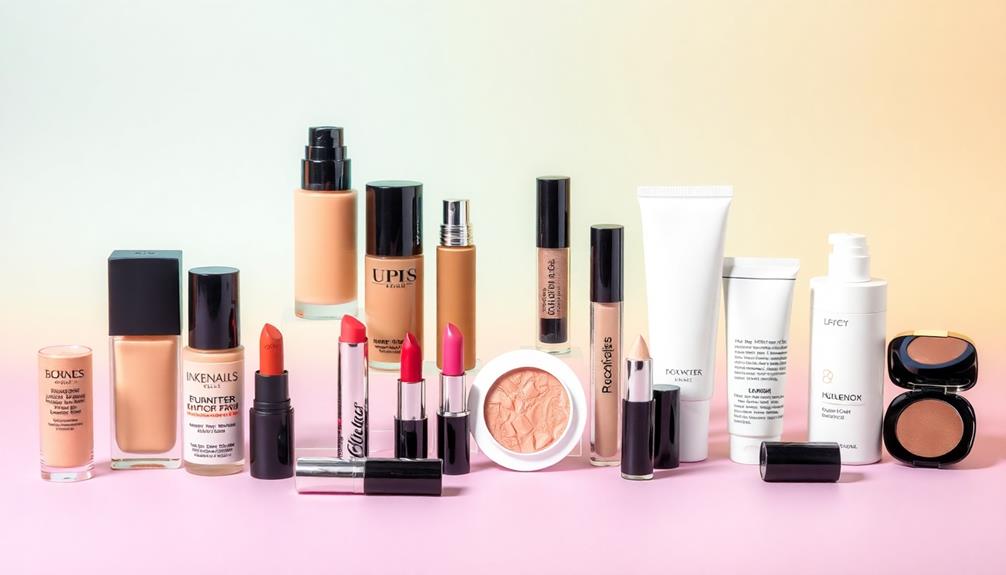
In recent years, inclusive beauty brands have transformed the industry by prioritizing representation and accessibility. You've likely noticed how brands like Fenty Beauty have set new standards with their impressive shade range.
Launching a 40-shade foundation line, Fenty expanded to 50 shades, catering to various skin tones, especially dark skin tones. This shift pushed other brands to follow suit and prioritize diversity and inclusion in their offerings. By embracing a sustainable approach, these brands are also contributing to eco-friendly practices within the beauty industry.
Danessa Myricks Beauty stands out by engaging authentically with diverse communities, showcasing vibrant models and developing specialized products for different beauty needs.
Meanwhile, established brands like MAC Cosmetics and Nars have a long history of commitment to inclusivity, with MAC offering an impressive 60 foundation shades and Nars providing 35 shades, proving they can cater to a wide demographic.
Brands like Juvias Place and The Lip Bar also deserve mention, as they focus specifically on the needs of deeper skin tones, ensuring their products resonate with their diverse consumer base.
Key Players in Inclusive Makeup
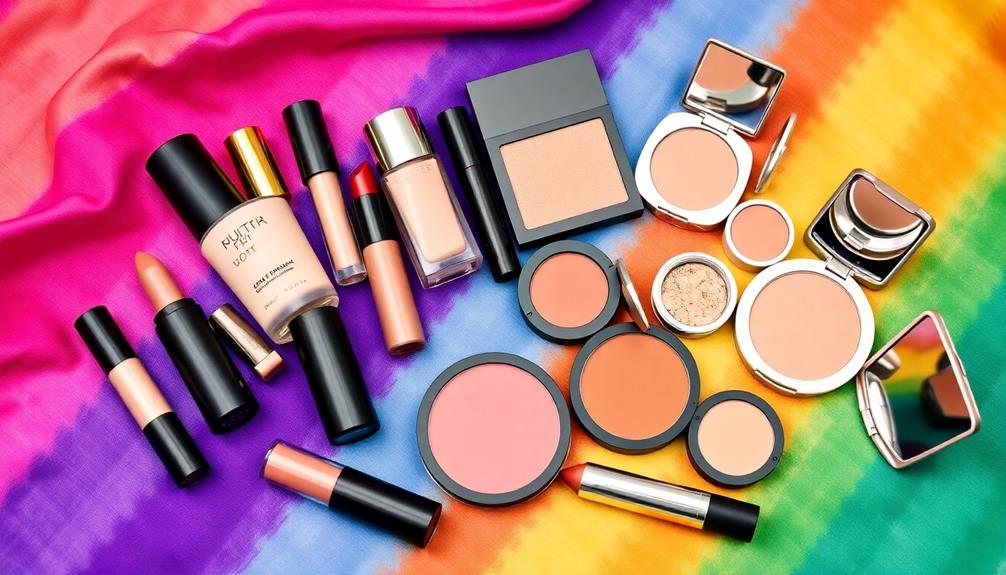
The landscape of inclusive makeup is shaped by several key players who are committed to diversity and representation. These makeup brands are leading the charge in offering an array of foundation shades that cater to every skin tone, especially deeper skin tones.
Here's a look at some of the most impactful brands:
| Makeup Brand | Foundation Shades Offered |
|---|---|
| Fenty Beauty | 50 |
| MAC Cosmetics | 60 |
| Pat McGrath Labs | 36 |
| Make Up For Ever | 40 |
| Juvias Place | 20 (vibrant shades for deeper skin tones) |
Fenty Beauty, launched by Rihanna in 2017, transformed the industry, while MAC has long been a pioneer in inclusive beauty. Pat McGrath Labs offers a luxurious touch to diversity with its foundations, and Make Up For Ever focuses on serving professional makeup artists. Meanwhile, Juvias Place stands out for its vibrant colors specifically designed for melanin-rich complexions. Together, these brands exemplify the importance of inclusivity in the beauty industry, ensuring everyone can find their perfect match.
Importance of Shade Diversity
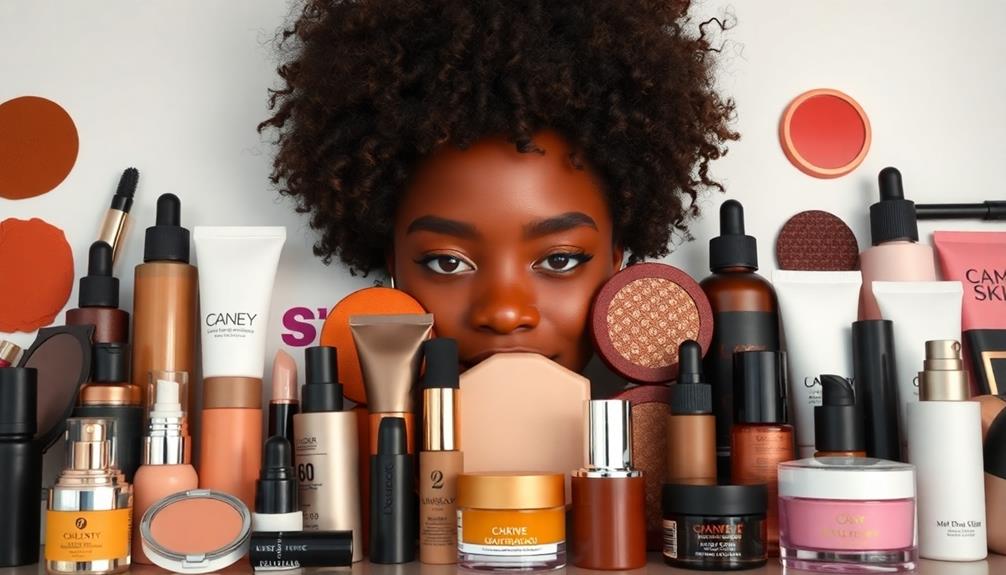
Shade diversity is essential because it empowers you to express your unique beauty without compromise.
Historically, many brands overlooked darker skin tones, but today's inclusive offerings are finally addressing those gaps.
You deserve a range of options that truly reflect your complexion and individuality.
Empowering Individual Expression
Diversity in beauty products plays an essential role in empowering individual expression, allowing everyone to find their perfect match and embrace their unique features.
Inclusive beauty brands like Fenty Beauty have set a new standard by offering a staggering range of 50 foundation shades, catering to women of color and ensuring that everyone feels represented. This commitment to diversity is evident across the industry, with brands like Maybelline expanding their Fit Me line to 40 shades and Nars offering 35 shades, making strides toward inclusivity.
Top-rated vacuums also emphasize functionality and user satisfaction, showcasing the importance of catering to diverse needs.
With CoverGirl's Matte Ambition All Day Foundation featuring 20 shades, it's clear that the beauty industry is recognizing the importance of providing options for all skin tones.
Juvias Place takes this a step further by creating vibrant makeup products specifically designed for deeper skin tones, enhancing individual expression and celebrating diverse beauty.
As you explore these inclusive offerings, remember that the ability to find a product that resonates with you isn't just about makeup—it's about embracing who you are.
With the growing variety of shades available, you can confidently express your individuality and celebrate your unique beauty.
Addressing Historical Gaps
For too long, the beauty industry overlooked the needs of individuals with darker skin tones, leaving many without suitable options. Fortunately, the conversation around inclusivity is changing. Makeup brands are now recognizing the importance of providing diverse shade ranges in their foundations.
Fenty Beauty made waves by launching with 40 foundation shades, which has now expanded to an impressive 50. This set a new standard and showed that inclusivity isn't just a trend; it's a necessity. Additionally, much like the growing awareness of health issues such as kidney stone prevention, consumers are becoming more knowledgeable about their beauty needs.
Similarly, Maybelline's Fit Me Matte + Poreless Foundation offers 40 shades, proving that affordability can go hand-in-hand with diversity. CoverGirl has also stepped up, expanding its Matte Ambition All Day Foundation to include 20 shades tailored for a wide spectrum of skin tones.
The growing emphasis on shade diversity is reshaping consumer expectations, pushing makeup brands to adapt or risk losing customers. As these brands cater to the needs of darker skin tones, they empower a broader audience and encourage self-expression.
The beauty industry is finally recognizing that everyone deserves to find their perfect match, validating the beauty in all skin tones.
Product Variety and Accessibility
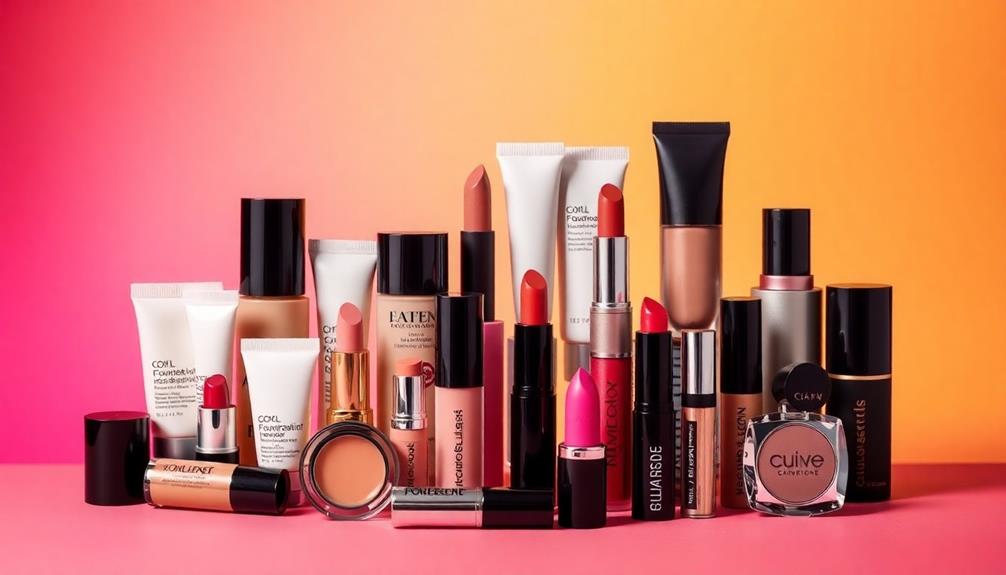
When you're searching for beauty products, you want options that suit your unique skin tone and budget.
It's important to recognize that navigating life's tiny pitfalls can often mirror the beauty industry's journey towards inclusivity.
Brands like Maybelline and Fenty Beauty offer extensive shade ranges at various price points, making it easier for you to find the perfect match.
Accessibility is key, ensuring everyone can enjoy quality beauty products that cater to their individual needs.
Broad Shade Selection
Finding the right foundation can feel like a challenging task, especially with the vast array of skin tones out there. Thankfully, beauty companies are stepping up their game with broad shade selections that cater to everyone. Brands like Fenty Beauty have revolutionized the industry, offering foundations with up to 50 shades, ensuring you can find a perfect match no matter your complexion.
This emphasis on diversity in beauty products reflects the broader movement towards the power of imagination, revealing transformative possibilities for consumers to express their individuality.
If you're looking for affordability, Maybelline's Fit Me Matte + Poreless Foundation offers 40 shades, making it accessible for many consumers. Meanwhile, high-end brands like Pat McGrath Labs provide 36 shades in their Sublime Perfection Foundation, showcasing a commitment to inclusivity even in premium products.
Additionally, brands like Juvias Place focus on deep-toned skin products, providing vibrant palettes that address the needs of consumers with darker skin tones who often face limited options.
The increasing demand for shade diversity has prompted brands like NYX Cosmetics to expand their offerings, proving that inclusivity isn't just a trend—it's essential.
With this broad shade selection, you're more likely to find a foundation that suits your unique skin tone, enhancing your beauty experience.
Affordable Pricing Options
Affordable pricing options are vital for making beauty products accessible to everyone, regardless of budget. When you're looking for inclusive offerings that cater to your unique skin tone, it's imperative to find brands that not only understand your needs but also offer a wide product variety without the hefty price tag. Brands like Maybelline and CoverGirl provide extensive shade ranges, guaranteeing you find a perfect match.
Here's a quick comparison of some affordable brands and their products:
| Brand | Product | Shade Range |
|---|---|---|
| Maybelline | Fit Me Matte + Poreless | 40 shades |
| Juvias Place | Foundation | Focused on deep skin tones |
| The Lip Bar | Lip products | Designed for deeper tones |
| NYX Cosmetics | Bare With Me Foundation | Diverse and affordable |
With brands like Mented Cosmetics and Milk Makeup, quality cosmetics remain within reach. These brands showcase vibrant colors and inclusive offerings, especially for deep skin tones. By prioritizing affordability, they guarantee you can express your beauty without compromise. The beauty industry is evolving, and it's more inclusive than ever!
Inclusive Representation in Marketing
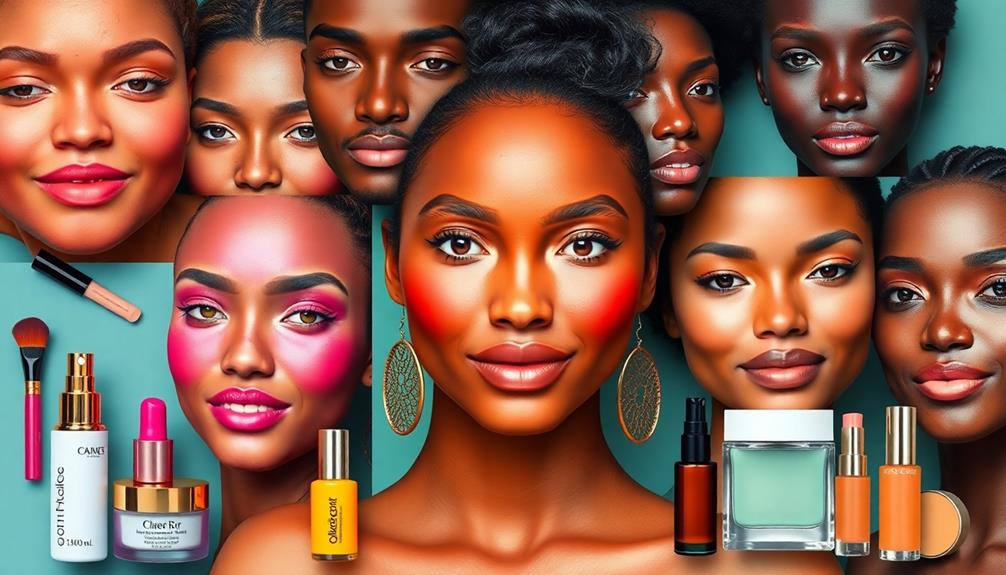
Inclusive representation in marketing has become a game changer in the beauty industry, pushing brands to recognize and celebrate diversity. You've likely noticed how brands like Fenty Beauty set the standard by launching 51 foundation shades that cater to a diverse range of skin tones and undertones. This level of authenticity and inclusivity not only meets the needs of consumers but also validates their beauty.
In a similar vein, celebrity relationships often reflect changing beauty standards, as seen with Kourtney Kardashian's nude photo scandal impacting her public image. Pat McGrath Labs further exemplifies this commitment by showcasing a wide array of global faces on their social media platforms. By doing so, they resonate deeply with consumers who seek representation that reflects their own experiences.
MAC Cosmetics embodies the mantra "All Ages, All Races, All Sexes" by consistently featuring diverse models in their campaigns, promoting inclusivity across all demographics.
The inclusion of models from various backgrounds, such as Nura Afia as the first hijab-wearing CoverGirl, highlights the importance of visibility in the beauty industry. Brands like Juvias Place focus on African heritage and deep skin tones, empowering women of color and celebrating their unique beauty through vibrant marketing strategies.
This shift is essential for creating a more inclusive beauty landscape.
Social Media's Role in Inclusivity
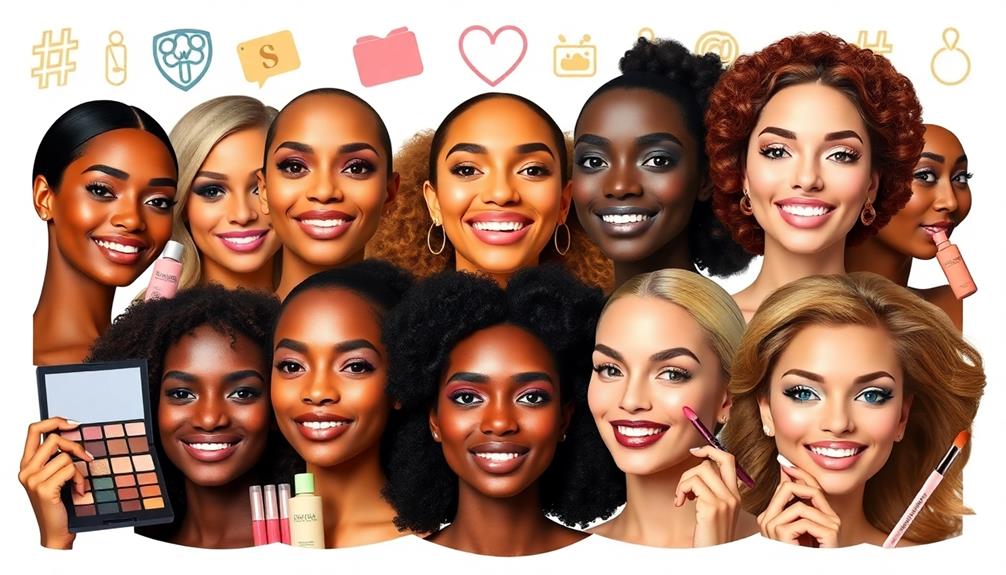
As social media continues to evolve, it plays a pivotal role in shaping the conversation around inclusivity in the beauty industry. Platforms like Instagram and TikTok have become essential for brands to showcase their diverse product launches and connect with consumers seeking shade inclusivity. Influencers and beauty creators amplify discussions about shade options, driving demand for brands that cater to a wider range of skin tones.
Additionally, the use of NLP in customer interactions is transforming how brands communicate their commitment to inclusivity, making the conversation more personalized and engaging.
When brands fall short, the backlash can be swift and public, as seen with Youthforia's lack of deep skin tones. This immediate reaction highlights how social media impacts brand reputation and consumer expectations for inclusivity. You can witness real-time feedback about products and practices, holding brands accountable for their inclusivity efforts.
Moreover, social media enhances consumer education on shade inclusivity. Users share reviews and tutorials, helping you make informed purchasing decisions tailored to diverse skin needs.
Ethical Marketing Practices
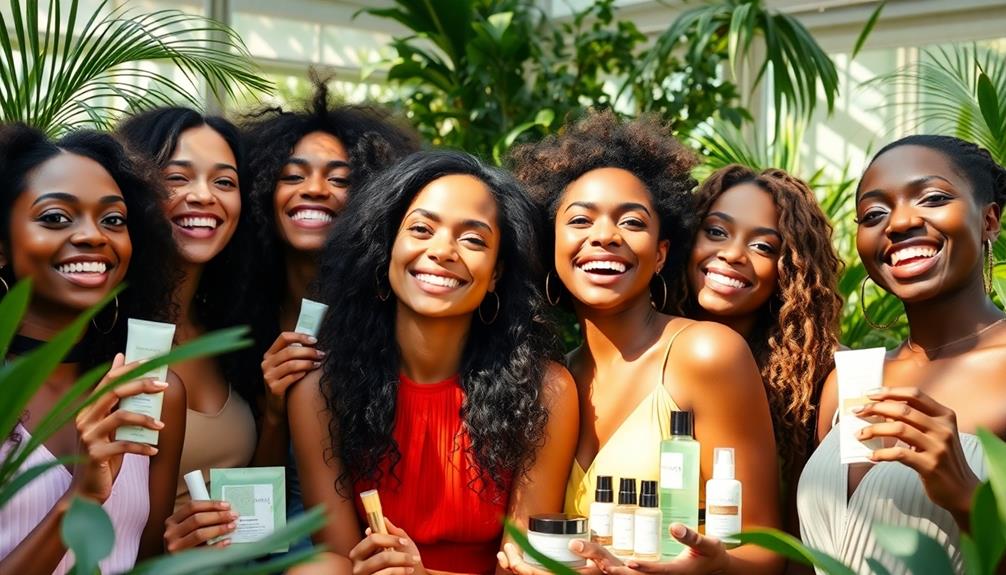
In today's beauty landscape, ethical marketing practices are essential for building trust and loyalty among consumers. When brands prioritize transparency, it not only enhances their authenticity but also creates a more inclusive environment for everyone.
You want to feel confident that the products you choose align with your values, and knowing how and where ingredients are sourced plays a significant role in that. By fostering a positive energy around their messaging, brands can influence opportunities for collaboration and growth, much like Abraham's Business Success Principles suggest.
A significant 75% of consumers, like you, prefer brands that demonstrate genuine representation and inclusivity in their marketing efforts. Brands such as The Ordinary and E.l.f. have set an example by showcasing pricing transparency, which builds consumer confidence and reflects ethical marketing principles.
Moreover, engaging with consumer feedback is essential for brands aiming to meet your needs. It allows them to create products and policies that resonate with your values, ensuring that you feel seen and heard in the beauty industry.
With the rise of social media accountability, beauty brands face increased scrutiny to uphold ethical standards in their advertising and product offerings. By prioritizing these practices, they can foster a stronger connection with you and contribute to a more inclusive beauty community.
Empowering Consumers Through Diversity
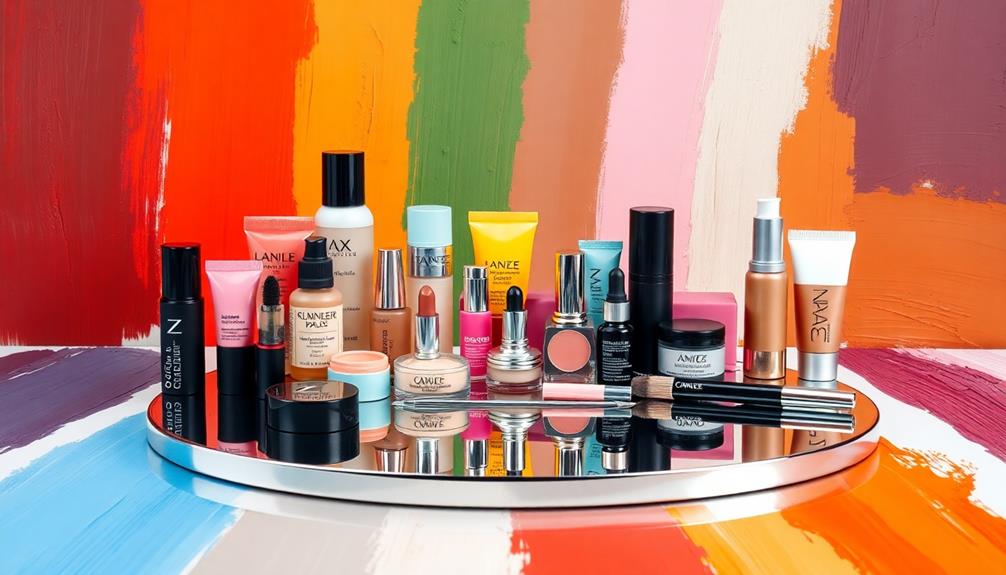
Diversity in beauty isn't just a trend; it's a movement that empowers you as a consumer to express your unique identity. Inclusive beauty brands like Fenty Beauty have revolutionized the industry by offering up to 50 foundation shades, catering to a wide spectrum of skin tones and undertones. This commitment to diversity means you can finally find products that match your skin perfectly.
Just as the Hopi Tribe preserves their ancestral knowledge through generations, beauty brands are now recognizing the importance of representing diverse cultures and identities in their product offerings recognition as guardians of beauty standards.
Juvias Place takes this a step further, focusing on vibrant products specifically designed for deeper skin tones. This dedication showcases a true understanding of melanin-rich beauty, allowing you to explore bold colors that enhance your natural beauty.
Major makeup brands like Maybelline and CoverGirl have also recognized this need, expanding their shade ranges considerably. Maybelline's Fit Me foundation now boasts 40 shades, increasing accessibility for diverse consumers like you.
Pat McGrath Labs highlights global beauty representation in its campaigns, featuring models from various ethnic backgrounds, ensuring you see yourself reflected in the products you choose.
Brands like The Lip Bar and Ami Cole prioritize community engagement, catering specifically to the needs of deeper skin tones while promoting clean beauty practices. Empower yourself through these inclusive beauty innovations!
The Future of Inclusive Beauty

With the beauty industry embracing inclusivity, the future looks bright for consumers like you who crave representation. More makeup brands are recognizing the importance of shade diversity, with pioneers like Fenty Beauty leading the charge by offering up to 50 foundation shades. This shift not only caters to a wider array of skin tones but also reflects a growing consumer demand for diverse options.
As the market evolves, you'll notice an increase in affordable brands like Juvias Place and NYX Cosmetics making quality products accessible. Social media serves as a powerful platform, where influencers advocate for inclusive practices and hold brands accountable for their offerings.
| Trend | Impact |
|---|---|
| Shade Diversity | More brands offering 40+ shades |
| Gender Inclusivity | Rise in gender-neutral products |
| Affordable Options | Budget lines promoting inclusivity |
You can expect that as younger generations prioritize inclusivity, brands will adapt their strategies to remain relevant. The future of beauty is inclusive, ensuring you can find products that resonate with your identity, regardless of skin tone or gender.
Frequently Asked Questions
What Is the Most Inclusive Beauty Brand?
When considering the most inclusive beauty brand, you might choose Fenty Beauty for its impressive range of 50 foundation shades. However, MAC and Make Up For Ever also offer extensive options that cater to diverse skin tones.
What Is the Inclusive Beauty Standard?
The inclusive beauty standard means you find products that cater to all skin tones and undertones. It guarantees everyone feels represented, with brands expanding their shade ranges and committing to ethical practices in marketing and product development.
What Race Buys the Most Beauty Products?
You'll find that Black consumers lead beauty product purchases, making up a significant portion of the market. Hispanic and Asian American consumers are also growing their influence, driving demand for diverse and inclusive beauty options.
What Is the Most Popular Beauty Product in the World?
While trends come and go, foundation remains a staple in every beauty routine. You can enhance your natural beauty with the right shade, making it the most sought-after product globally for countless individuals seeking that perfect match.
Conclusion
As you explore the world of inclusive beauty, consider this: nearly 70% of women have trouble finding their ideal foundation shade. This statistic highlights the ongoing need for brands to prioritize shade diversity and accessibility. By supporting companies that embrace all skin tones, you're not just enhancing your beauty routine—you're championing a movement towards representation and empowerment. The future of beauty is bright, and it's all about celebrating every unique hue.

